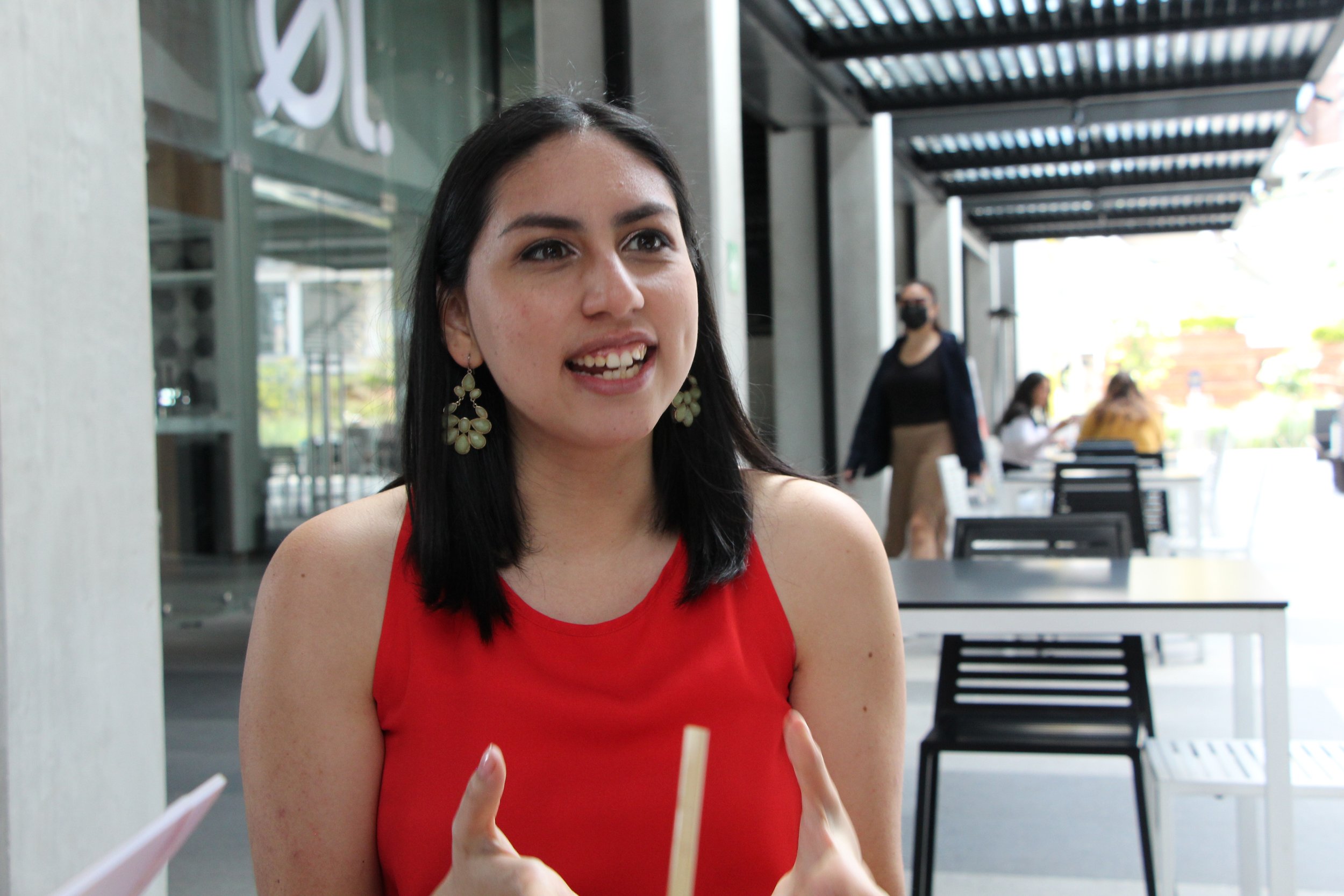The era of female filmmakers
Emily Gularte and Pamela Guinea work to change the Guatemalan Film industry.
By Molly Wilson
Emily Gularte sat in a theater for the 2019 Sundance Film Festival in Park City, Utah, that showcased the top artists and filmmakers. She was one of 15 students, ages 18 to 24, chosen to become a part of the Sundance Ignite 2019 Fellowship.
She watched as her film, “Lagartija,” or “Lizard,” played. She watched as Universidad Francisco Marroquín Film School’s logo crossed the screen.
She watched as a girl struggled to fit in with her mother’s new family. She watched as the girl’s father offered to take her to the beach. She watched as the girl realized she wouldn’t fit in with his family either.
And then she saw her name: “Written and Directed by Emily Gularte.”
Gularte is part of a new generation of filmmakers in Guatemala who want to show their country not just in drama, but also in joy.
“The screening was so beautiful because you can sense when people feel something. They are quiet because they feel comfortable,” Gularte’s best friend, producer and editor Carlos Luxo said. “So when we were watching it at UFM I remember that silence, that emotion that you can sense from the audience.”
Pamela Guinea grew up in Guatemala and Mexico being told she could do what she wanted. She became a film producer with the inspiration of her poet father and feminist grandmother despite the film industry being male-dominated.
Guinea took the attitude that she could pursue any career she wanted to into the film industry where she created Muestra de Cine Hecho por Mujeres, a place where women from across the world come and create a short film while working and learning with other women in the industry. In 2020, 176 women applied to the program. 14 were accepted.
“Everybody [in the program] feels that they are in a secure place,” she said. “I don’t suggest the topics, the topics are free. You can talk about your dog, granddaughter, whatever you want, but everybody wants to talk about violence, the body, the way it feels, the insecurities, the scares.”
A year earlier, Gularte sat on the bathroom floor of her hotel room writing a new script on the hotel notepad. It was the middle of the night and she didn’t want to wake up her roommate. Until that moment, she hadn’t realized what her project was truly about – being the daughter of divorce.
“I come from a family where my parents separated when I was little,” she said. “I think when you’re a child experiencing things that are harsh, [it] has a very big impact on you. It makes you grow up a little faster.”
Growing up surrounded by creative people, Gularte realized she wanted to go into a similar profession. She saw the value in images and how much they can convey and decided to go to film school.
Two months after rewriting her script on the bathroom floor, Gularte was getting ready to film.
“I got this panic and this fear inside of me that I wasn’t able to pull this off,” Gularte said. “I’m also very perfectionist, so I was like, ‘This is gonna be a disaster, and I don’t have the experience, I don’t have the talent, capacity.’”
She went to Luxo for support.
“You really have it,” he said. “You just have to trust yourself.”
Guinea is trying to grow the Guatemalan film industry and make it more representative of the population that actually lives in the country.
“We have our own unique ways to talk, fall in love, smile, so it’s important to see those reference points and see ourselves on the screen and to recognize ourselves,” she said. “That’s why I am so stubborn to keep doing film [in Guatemala].”
Muestro de Cine Hecho por Mujeres is helping her do just that. According to Guinea, the hardest part about filming in Guatemala is funding. Because there are few laws surrounding filmmaking, finding places to shoot isn’t hard, but finding the money is.
In Mexico, the government will give a producer or director money to film a movie as long as 70% of the money is spent in Mexico. Guinea has used this method and then taken the other 30% back to Guatemala on locations or hiring other Guatemalan filmmakers.
Her goals are to represent Guatemala in the global film industry and create more opportunities for women in film.
She has found when she hires for a film, the obvious choice is a man. She makes the effort to find a woman who is qualified for the job instead.
“If a woman would have the confidence of a man, it would be really different history,” she said. That’s why she started Muestro de Cine Hecho por Mujeres. “We need to create this confidence in this group of girls.”
Guatemalan film is known for its drama. The stories about civil wars, missing family members and natural disasters. Gularte sees more in her country than the drama it faces. She sees the everyday life, the comedy and the joy.
Her next goal is to get her master’s degree in directing at the American Film Institute in Los Angeles so she can learn how to make comedies and showcase the joy she sees in the Guatemalan culture she wants to return to after she graduates. Alumni from the program include Patty Jenkins, who directed “Wonder Woman.”
She wants to change Guatemalan film.
“I really want us to tap into the colorful, beautiful, funny side of Guatemala,” she said. “That’s where I feel very connected to and what I found to love the most about Guatemala. And I don’t see that on screen.”
(Additional reporting by Nataly Basterrrechea.)





